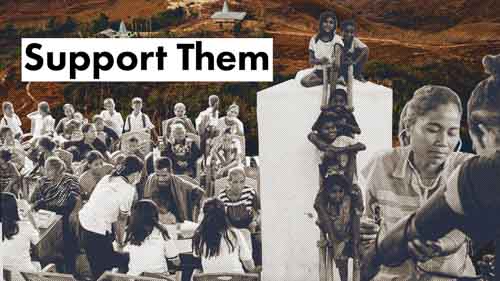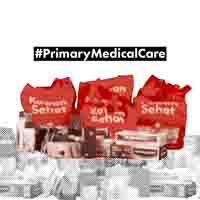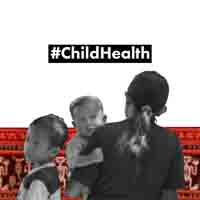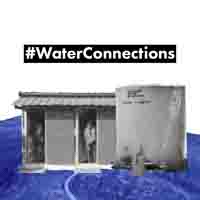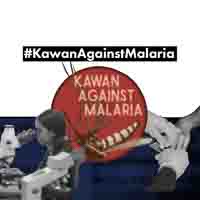Our new logistics truck journeys from Bali to Sumba, reaching Rumah Kambera.
On its first mission, Truck n’ Load transported over 3 tons of supplies, navigating storms and heat.
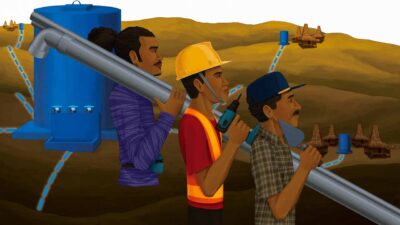
The Truck n Load proudly displays hand-painted scenes of life in East Sumba and our daily humanitarian action.
The Truck n’ Load took three days and three nights to reach Rumah Kambera, our base camp in East Sumba.
This journey for Ino and me was marked by endurance, mechanical pressure, and camaraderie. This mission was the first test for our new logistics truck, a crucial asset in ultra-rural regions where every drop of fuel and every bolt of steel must prove its worth.
We left Denpasar in the evening, our truck loaded with over three tons of medical supplies, logistics equipment, and educational materials. The journey to Padangbai went smoothly. At the ferry terminal, while we waited to board, a man offered us shoulder massages—an unusual but welcome break before what promised to be a series of eventful crossings.
Our first stop was Lembar on the island of Lombok. From Padangbai, we boarded an empty ferry quickly filled with passengers on two wheels and trucks. Being the first to board, we ultimately ended up being the last to leave due to a blocked entrance (or exit) door and the shouts of engineers in the belly of the ship. Only at 3 a.m., after a little over five hours of crossing between Bali and Lombok, we arrived at the port of Lembar.
The second ferry to Waingapu, East Sumba, was delayed by 12 hours. We spent our time in Lombok under a blazing sun, wandering around Mataram to find food and rest in a hail of dust. You must stay hydrated, eat healthily, and be patient on days like these.
In the afternoon, we arrived at the port of Gilimas. The wait continued in the sweltering heat. We took a nap on the floor of a warung, drank coconuts, and stood next to the Truck n’ Load as it slowly made its way to the queue to board the Dharma Kartika. Finally, at 8 p.m., we were at sea.
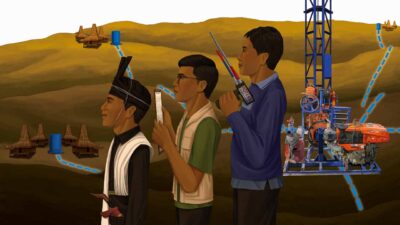
The Truck n Load proudly displays hand-painted scenes of life in East Sumba and our daily humanitarian action.
The journey to Waingapu lasted 24 hours. The sea remained calm, alternating between sleep, observation, and having some food. At sunrise, the boat was travelling at 15 knots. Sumba soon appeared, unmistakable among thousands, with its hills that would quickly turn from pale green to yellow, heralding eight to nine months of drought, as it does every year. A child bathing in an old steel sink by the roadside marked our arrival. We had indeed arrived home.
Waingapu Harbor was extremely muddy, indicating that the rainy season was still ongoing. Be patient; in two weeks, it will be very hot during the day and cloudy at night, and it won’t rain again for the next eight months.
Exhausted and a little dirty but satisfied, we arrived at Rumah Kambera. Our friends and colleagues Susanti, Elton, Bobby, and Primus helped us unload the essential equipment for weeks of work: fifteen solar panels, 320 treated mosquito nets, medical supplies for the Primary Medical Care program and the Kawan Sehat Agents, lots of teaching materials, a gas pump, a 1,000-liter tank, and clean water tools. The truck fulfilled its mission, supporting the weight of our efforts.
The journey now begins. A new cycle of action is unfolding: the construction of eight new ferro-cement water tanks in Hambarita, one huge 110m3 water reservoir in Laindatang, the Malaria Study Program in Umalulu and surrounding villages, the reinforcement of infectious disease prevention, dozens of free health days, the launch of the SolarBuddy distribution to thousands of children, and the continuous training of Kawan Sehat health agents. Our primary medical care program is expanding fast, and we will soon move to a new field base to better respond to these growing needs. With our Truck n’ Load, we carry not just materials but commitment — faster, stronger, and closer to those who need us most.
Today, April, the 4th, 2025 – Alex Wettstein, in Rumah Kambera
List of Related Organizations with Hyperlinks
- Transaid: Works to improve transport for health and development across remote regions, similar to Fair Future’s logistical approach.
- Last Mile Health: Like Fair Future, brings healthcare to remote areas through mobile teams and local health workers.
- Direct Relief: Provides medical aid to improve the health of people in hard-to-reach communities worldwide.
- Doctors Without Borders: Operates emergency response missions with mobile medical teams in crisis zones.
- Riders for Health: Maintains vehicles to ensure access to health care in remote rural areas.
- Humanitarian Logistics Association: Promotes effective logistics for humanitarian response, aligning with Fair Future’s goals.
- Global Health Supply Chain Summit: Advances supply chain solutions for health systems in developing countries.
- Project HOPE: Supports medical logistics and rapid deployment of supplies to underserved areas.



